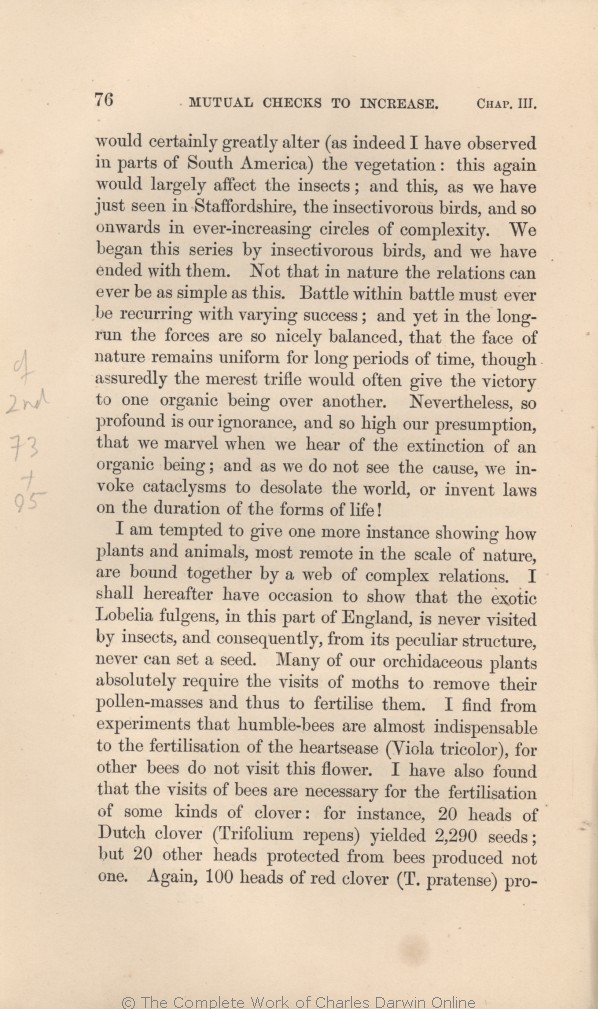lessen the number of the navel-frequenting flies— then cattle and horses would become feral, and this would certainly | lessen the number of the navel-frequenting flies— then cattle and horses would become feral, and this would certainly 1861 1866 1872 |
| certainly 1859 1860 |
| lessen the number of the navel-frequenting flies—then cattle and horses would become feral, and this would certainly 1869 |
| have just 1861 1866 1869 1872 | | just have 1859 1860 |
| Staffordshire, 1859 1861 1866 1869 1872 | | Stafford-shire, 1860 |
| in 1859 1860 1861 1866 1869 | | under 1872 |
| can 1859 1860 1861 1866 1869 | | will 1872 |
| ever 1859 1860 1861 1866 1869 | ever 1872 |
| recurring 1859 1860 1861 1866 1869 | | continually recurring 1872 |
| uniform for long periods of time, 1859 1860 1861 1866 1869 |
| for long periods of time uniform, 1872 |
| often 1859 1860 1861 1866 1869 | often 1872 |
| Nevertheless, 1861 1866 1869 1872 | | Nevertheless 1859 1860 |
|
|
I am tempted to give one more instance showing how plants and animals,
most | most 1859 1860 1861 1866 1869 | most 1872 |
| fulgens, 1859 1860 1861 1866 1869 | | fulgens 1872 |
| in this part of England, 1859 1860 1861 1866 1869 |
| OMIT 1872 |
| by 1859 1860 1861 1866 1869 |
| in my garden by 1872 |
| can 1859 1860 1861 1866 | can 1869 1872 |
| set 1859 1860 1861 1866 | | sets 1869 1872 |
| Many of 1859 1860 1861 | | Nearly all 1866 1869 1872 |
| moths 1859 1860 1861 | | insects 1866 1869 1872 |
| find from experiments 1861 1866 1869 1872 |
| have, also, reason to believe 1859 1860 |
| almost indispensable 1861 1866 1869 1872 | | indispensable 1859 1860 |
| 1 blocks not present in 1861 1866 1869 1872; present in 1859 1860 | | From experiments which I have tried,
I have found that the visits of bees,
if not indispensable, are at least highly beneficial to
the fertilisation of our
clovers;
but humble-bees alone visit the common
red clover (Trifolium pratense), as other bees cannot reach the nectar.
|
| seeds; 1861 | | seeds, 1866 1869 1872 |
| pro- duced 1861 | | produced 1866 1869 1872 |
|









